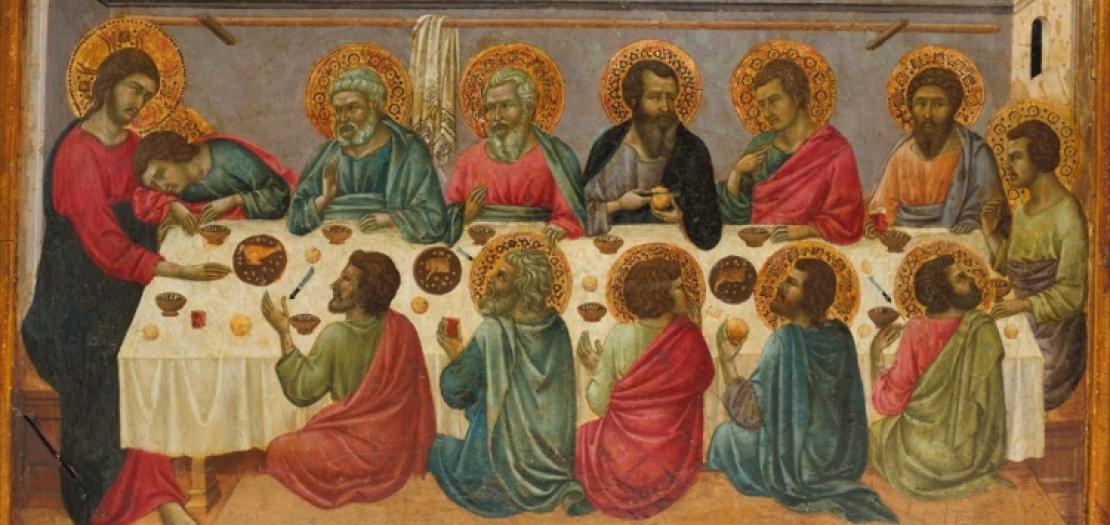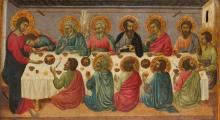Issued by the Catholic Center for Studies and Media - Jordan. Editor-in-chief Fr. Rif'at Bader - موقع أبونا abouna.org

Following is the text of Patriarch Pizzaballa's meditation for the seventh Sunday of Easter dated June 1, 2025:
Be one: This is the sentence that occurs most frequently in the Gospel of this seventh Sunday of the Easter season. (John 17:20-26)
It is the last Sunday of the Easter season, before Pentecost. And on this Sunday we see the goal, the ripe fruit of God's gift that was given to us in Jesus' Easter.
Being one is first and foremost something that concerns the intimate life of Jesus and the Father: for Jesus affirms that he and the Father are one (“that they may be one, just as we are one”. (John 17:22) But being one is also what Jesus asks for us, his desire: that all may be one, (John 17:21) just as it has always been between him and the Father.
But what does it mean to be one?
You could say that you are one if you have nothing in a relationship only for yourself and of yourself.
If we go through the Gospels, we can find hidden traces of this deep unity.
We find one where Jesus says that everything has been given to him by his Father (“All things have been handed over to me by my Father. No one knows the Son except the Father, and no one knows the Father except the Son and anyone to whom the Son wishes to reveal him.” (Matthew 11,27) The Father has life, but he does not keep it for himself alone, but gives it to the Son, who in turn gives everything back to the Father by putting everything back into his hands. (cf. Luke 23:46)
We find another parable in the parable of the merciful father, when the father goes to meet his eldest son to remind him that he can take everything because everything also belongs to him. (Luke 15:31) It is not just his.
Everything that belongs to the father also belongs to the eldest son, and it also belongs to the younger son.
The moment you think that something belongs only to him, unity is lost, you are no longer one.
The life of the early Christian community, which we are told about in the Acts of the Apostles during these Easter days, is a reflection of this way of life.
Those who are received into the Christian community through baptism immediately make what they are and what they do available to everyone (“among them all things were common”. (Acts 4:32) Not out of duty, not to obey a law, but out of a need of the heart, out of an inner necessity, because this is how those who have encountered the Lord Jesus live.
For the opposite of unity is loneliness, belonging to no one, like the branch that remains unattached to the vine, so that it withers and dies (Jn 15:6). We could therefore say that being one is possible to the extent that one has a poor heart. The poorer you are, the freer you are from the need to hold and possess, and the more you experience oneness with all others.
Now, for Jesus, this oneness is the most beautiful and true thing that can happen in a person's life, it is our deepest calling; it is what Jesus wants for us. (John 17:24)
We dwell on this will of Jesus, which we find in v. 24: “Father, I want those whom you have given me to be with me where I am, so that they may behold my glory, the glory you have given me, for you loved me before the creation of the world.”
Several times in the Gospels we hear that Jesus does not want to do his own will, but that of the Father: he wants nothing other than what the Father wants.
So he does not want any other messianic style than the one the Father has entrusted to him, he does not want to say anything other than what he has heard from the Father, he does not want to be freed from the passion to do the Father’s will.
Here, however, we hear that the verb want has Jesus as its subject. Jesus can no longer stop being one with us, and he wants this union to be eternal, that it does not end with his death, that no one is lost.
And in order for this will of his to be fulfilled, Jesus is prepared to give his life: this is how he will finally make the Father known to us, the love with which the Father loves him, the same love with which he loves us: “And I have made your name known to them, and will make it known, so that the love with which you have loved me may be in them, and I in them.” (John 17:26)
+ Pierbattista
 Holy Land: Cardinal Pierbattista Pizzaballa presides at parish feast celebrations in Zababdeh
Holy Land: Cardinal Pierbattista Pizzaballa presides at parish feast celebrations in Zababdeh  Bethlehem University hosts presidents of universities to discuss higher education issues, strengthen cooperation
Bethlehem University hosts presidents of universities to discuss higher education issues, strengthen cooperation  Marking Independence Day, Bible Society of Jordan presents wheelchairs to those with mobile disability
Marking Independence Day, Bible Society of Jordan presents wheelchairs to those with mobile disability 



